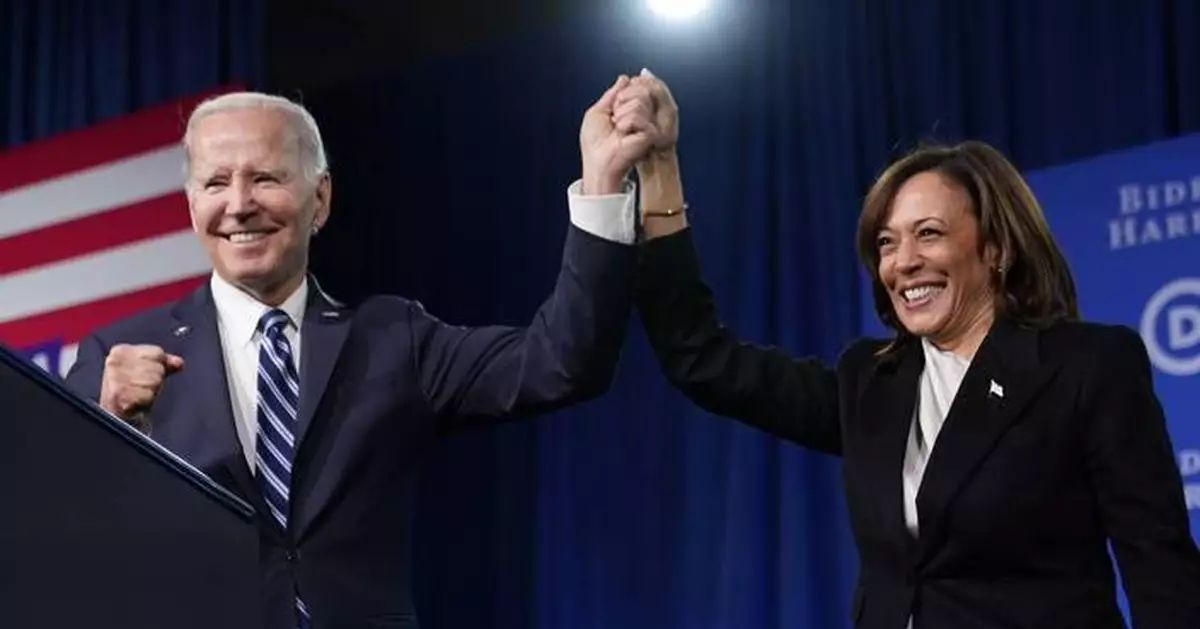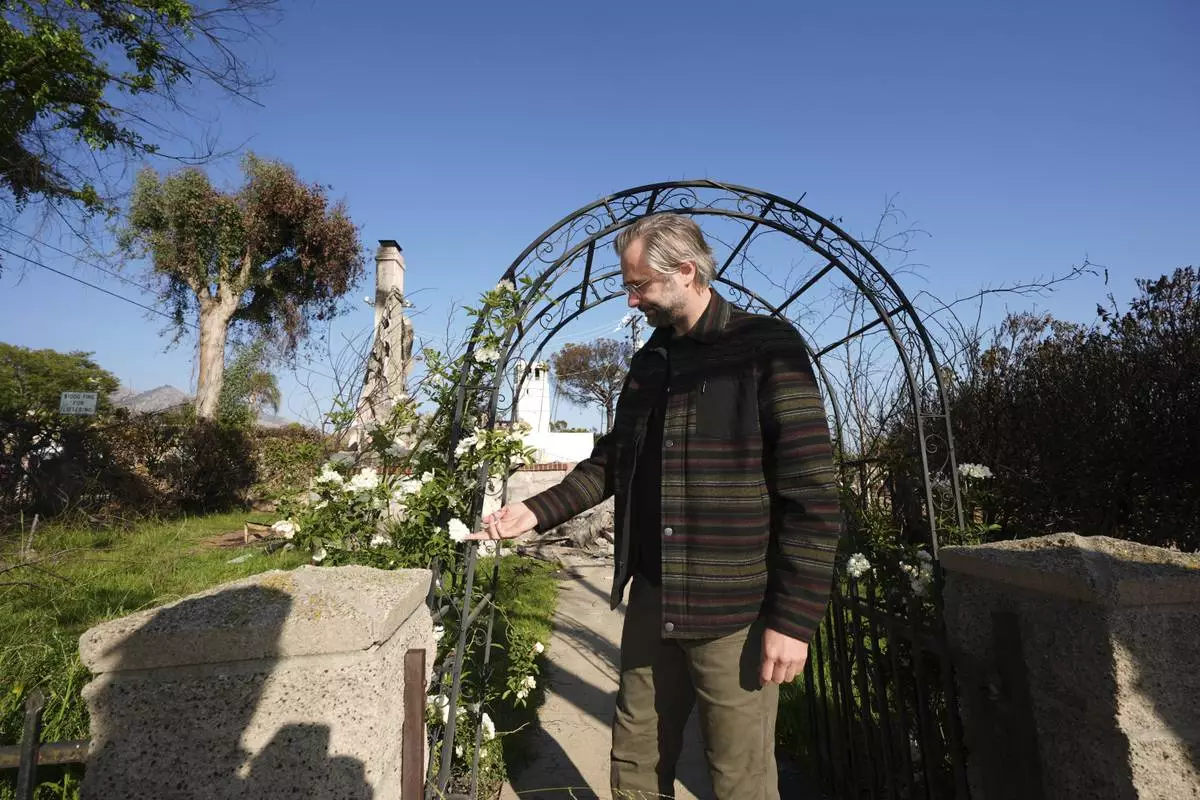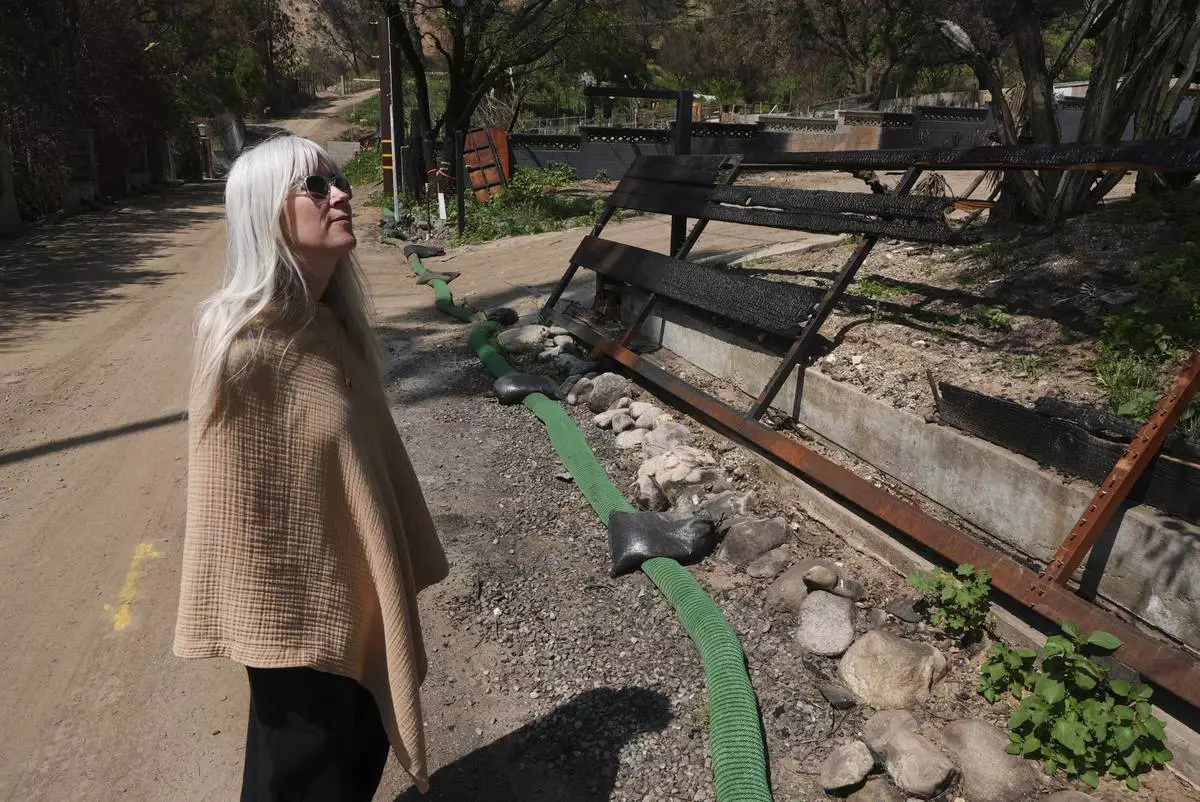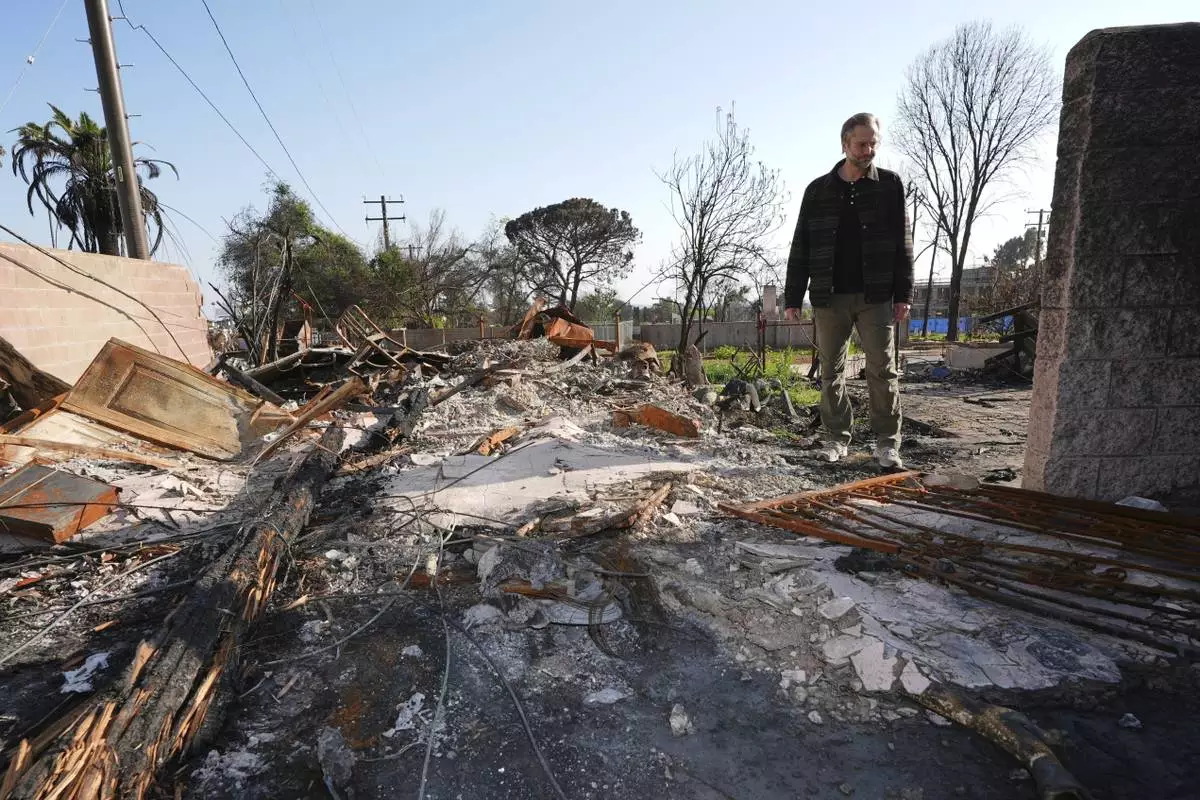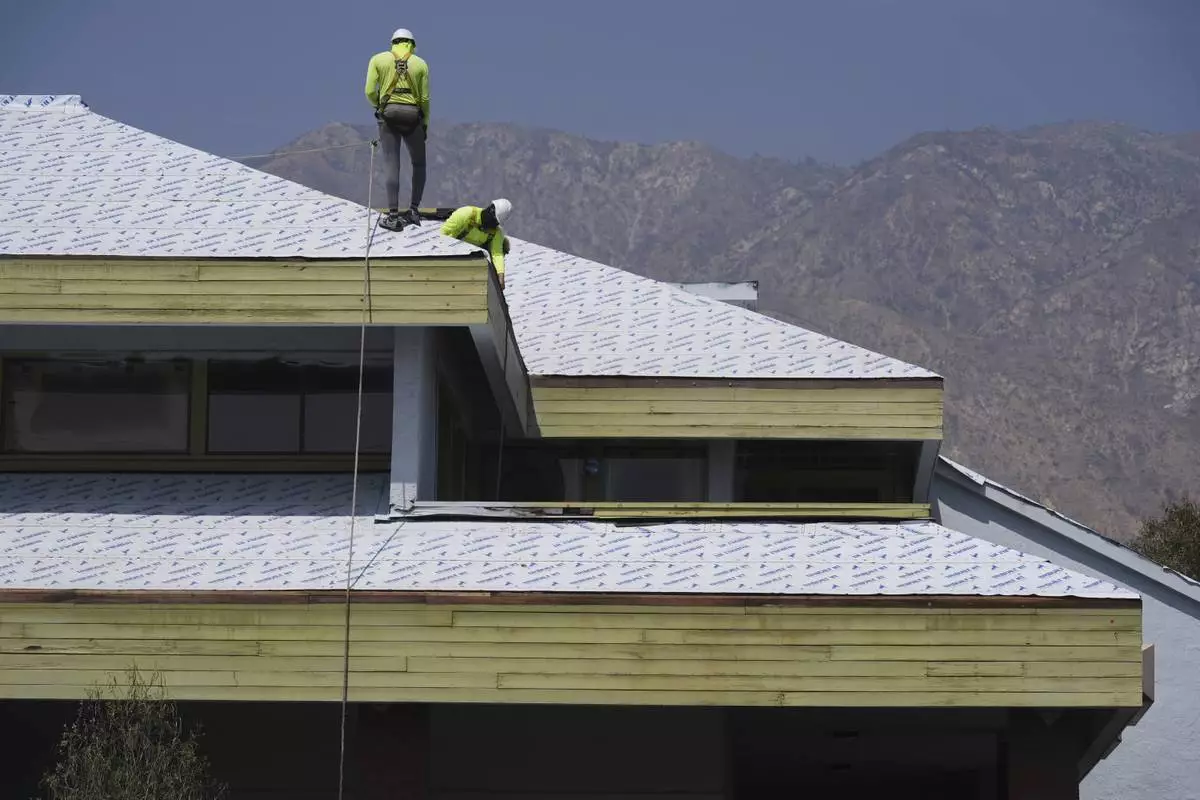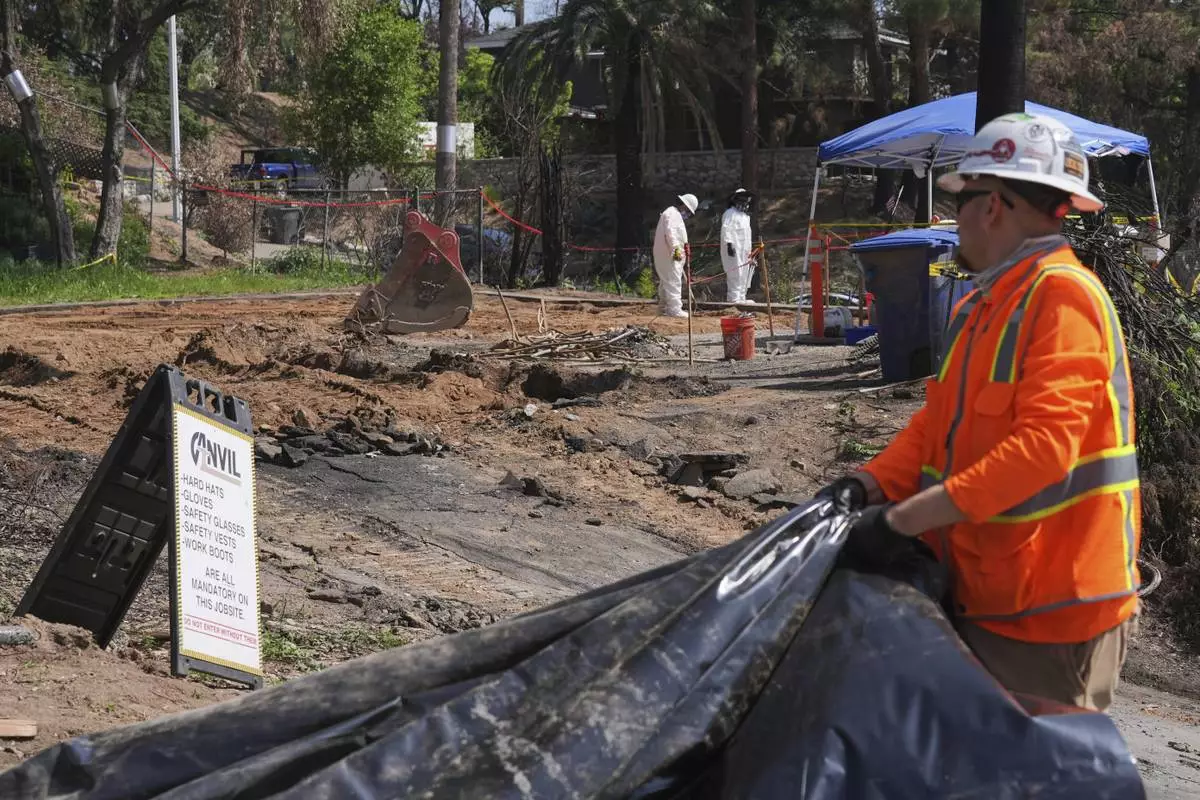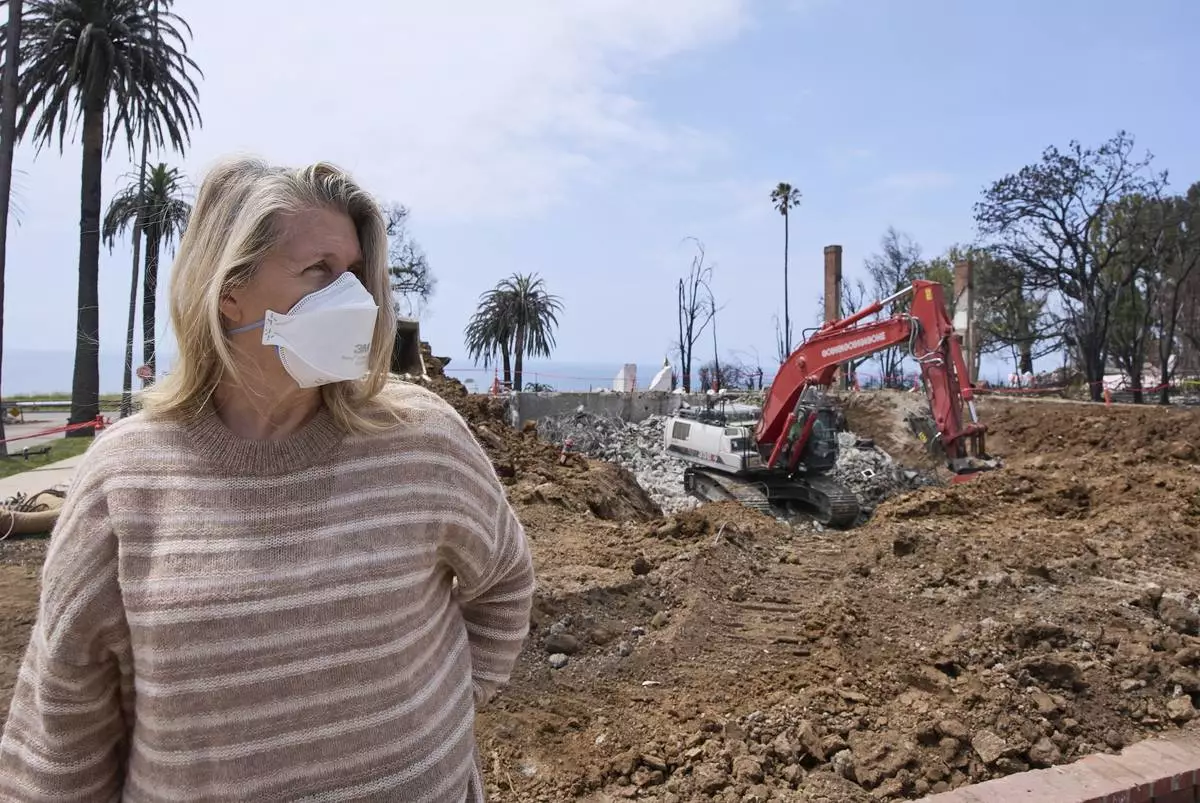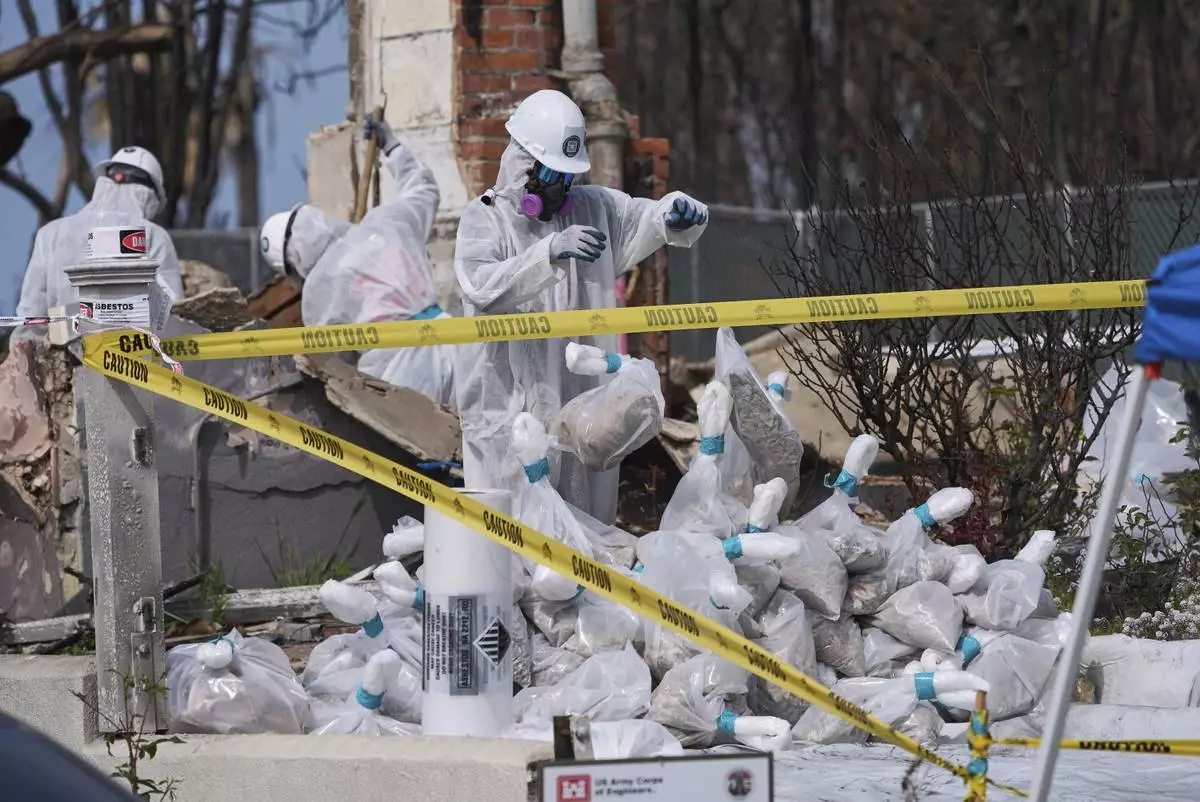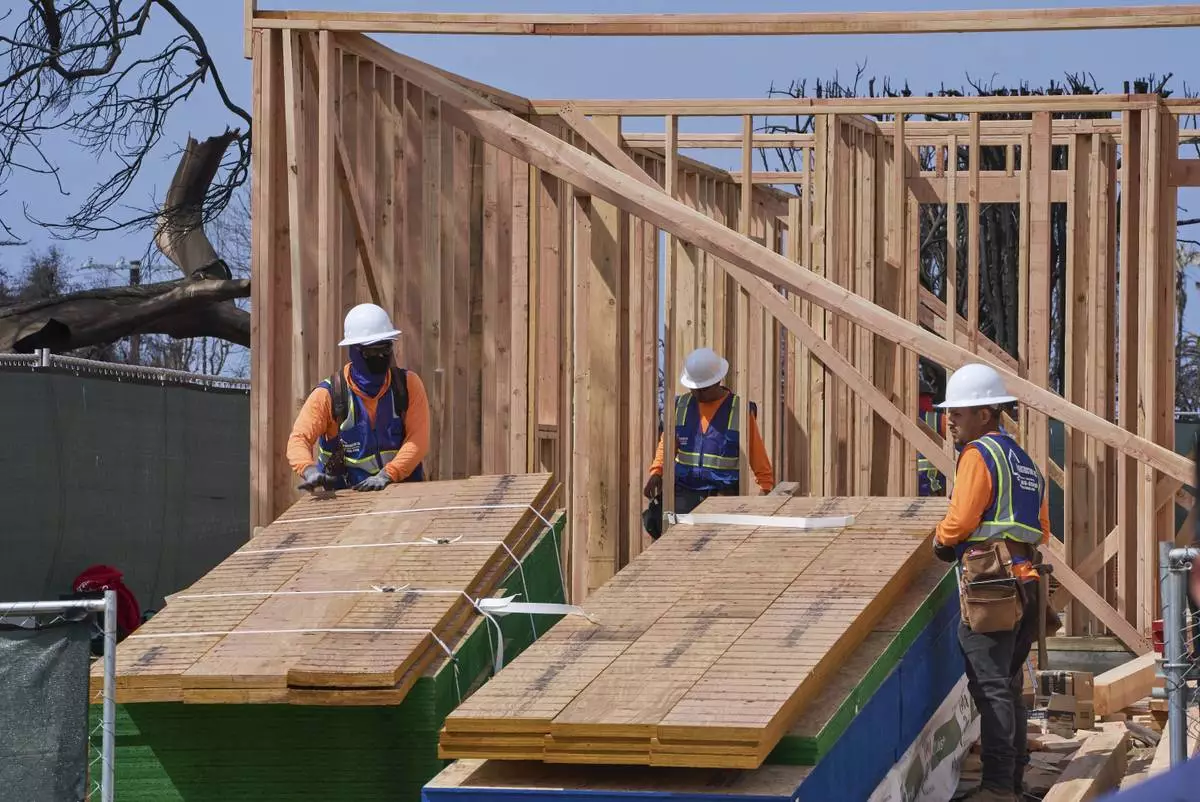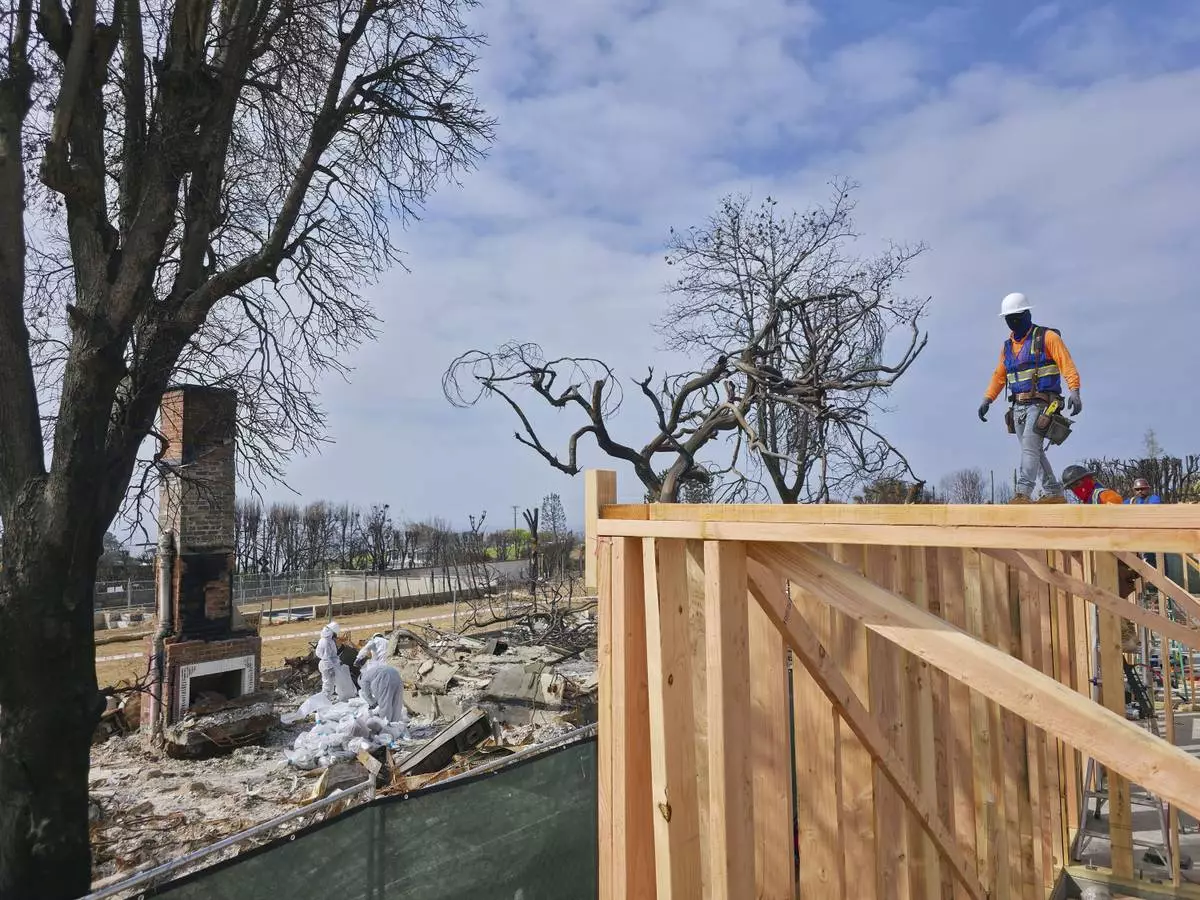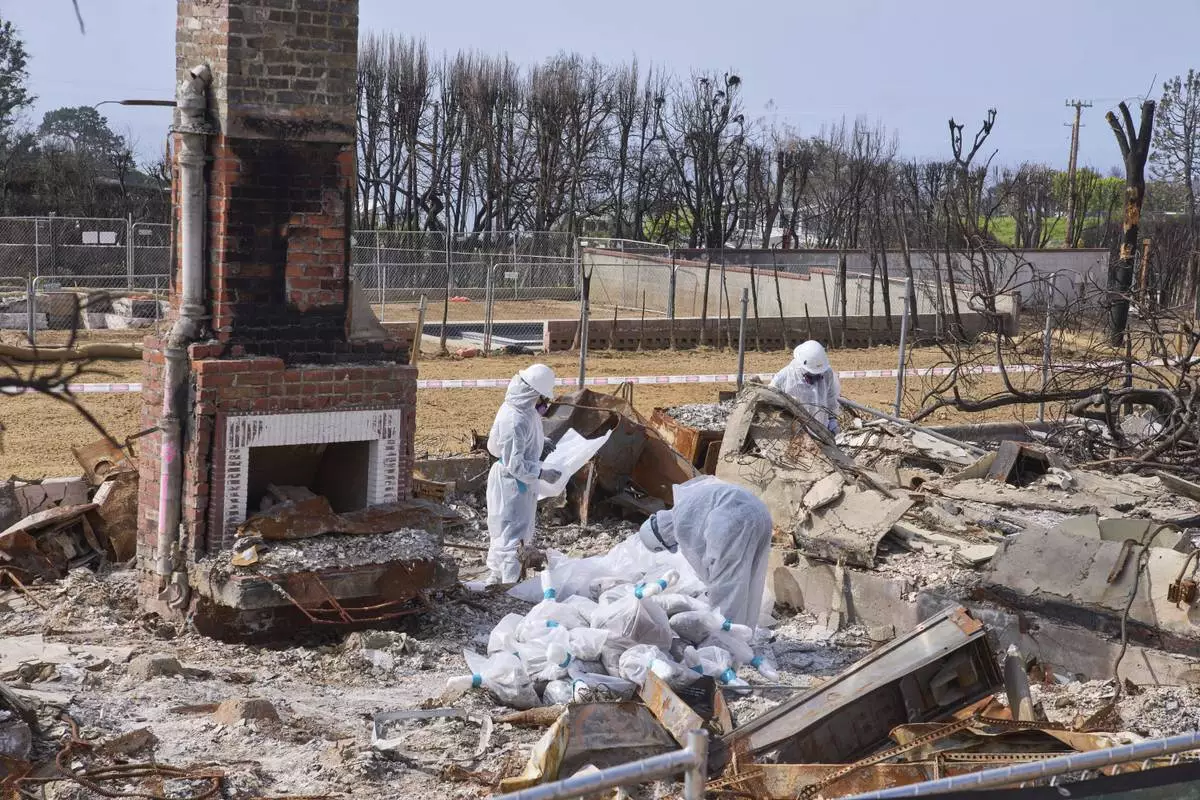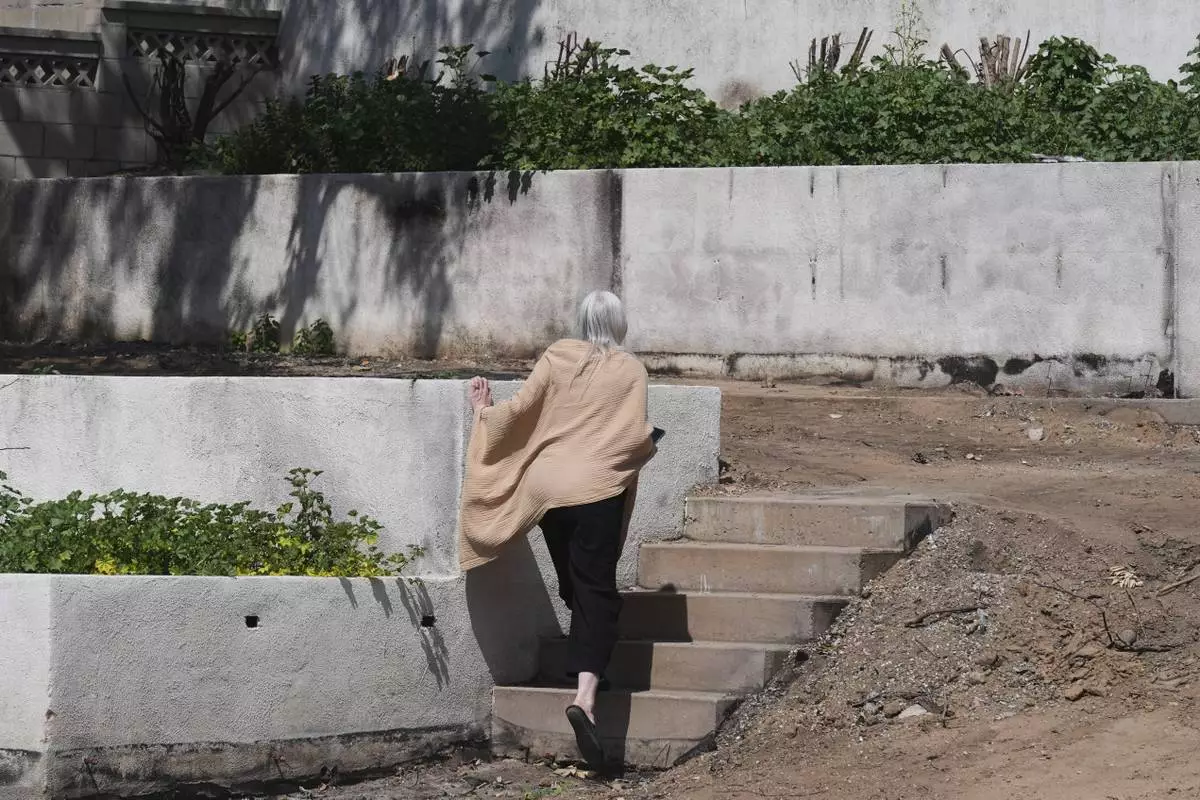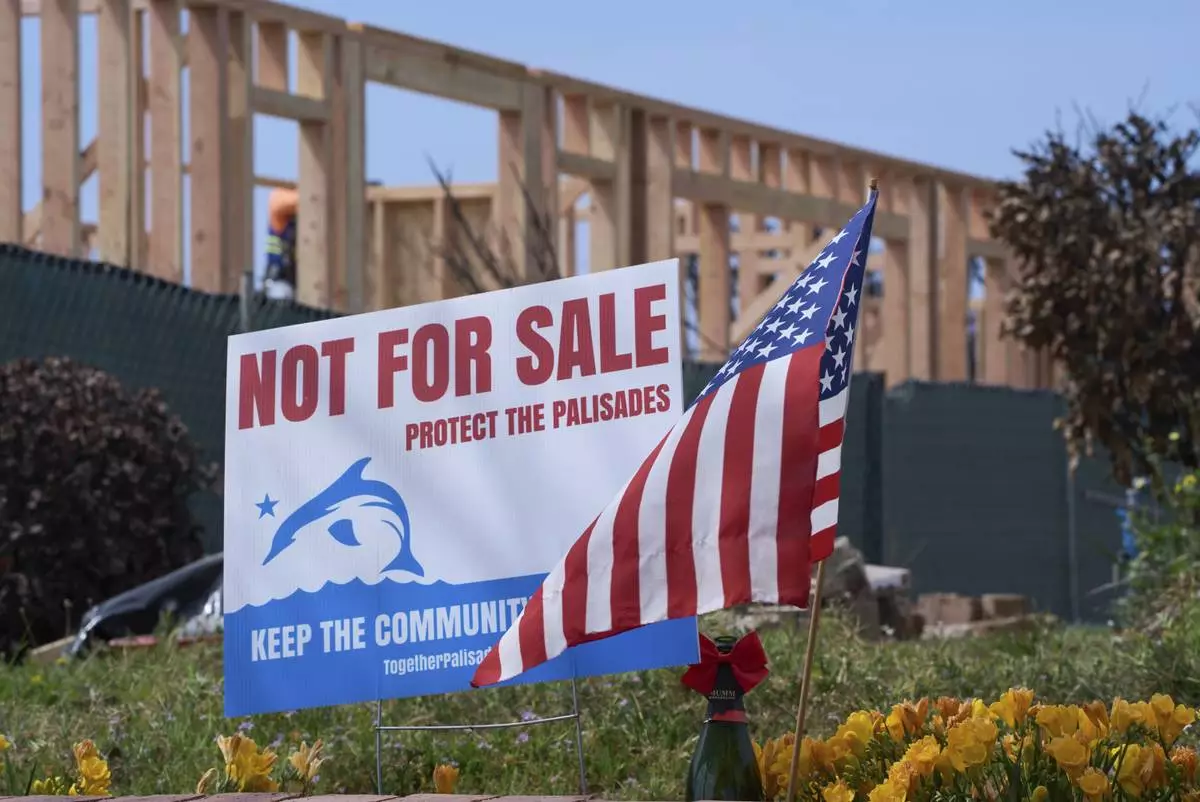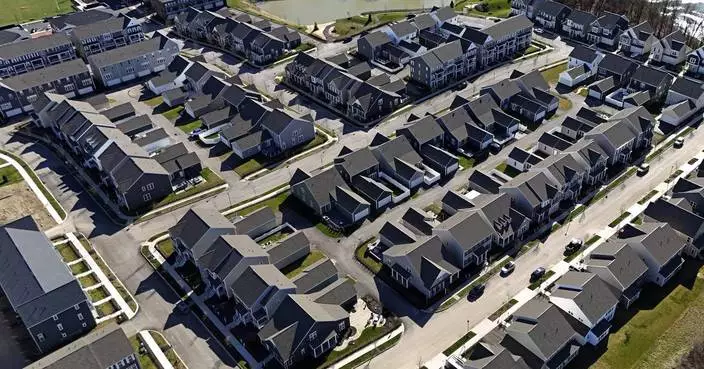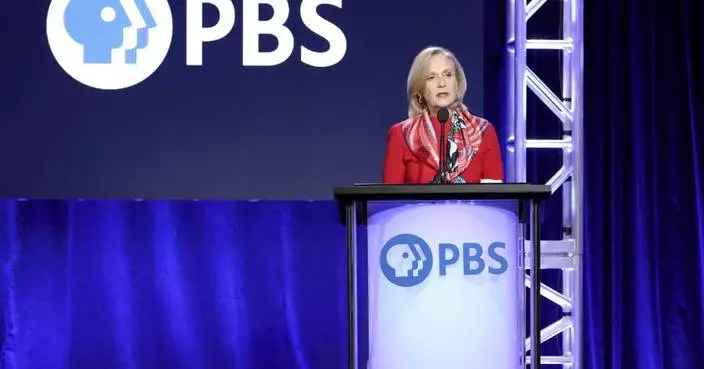WASHINGTON (AP) — A key question is looming for Vice President Kamala Harris as she edges closer to gaining the Democratic presidential nomination: Can she turn the Biden-Harris economic record into a political advantage in a way that President Joe Biden failed to do?
In some ways, her task would seem straightforward: The administration oversaw a vigorous rebound from the pandemic recession, one that shrank the U.S. unemployment rate to a half-century low of 3.4% in early 2023 — far below the painful 6.4% rate when Biden and Harris took office in 2021. The rate stayed below 4% for more than two years, the longest such stretch since the 1960s.
Boosted by the administration's $1.9 trillion stimulus package, robust economic growth sent demand for workers soaring, forcing employers to jack up wages. Paychecks rose particularly fast for lower-paid workers, thereby narrowing income inequality.
Soon, though, clogged supply chains caused parts shortages, as demand for furniture, cars, and other goods, juiced by the administration's stimulus, soared. Russia's invasion of Ukraine escalated gas and food prices. In June 2022, inflation reached a four-decade high.
The spike in prices was so severe that it offset most of the wage growth that workers had enjoyed. And it soured Americans on the economy. Consumer sentiment plunged in late 2021 and has barely recovered even as inflation has plummeted from 9.1% in 2022 to 3%.
A wide gap has opened up between the public's dim view of the economy and the generally positive data on jobs, falling inflation and economic growth. Chris Jackson, head of polling at Ipsos Public Affairs, said he blames the cumulative jump in average prices over the past three years — roughly 20%, only partly offset by higher paychecks — and a general unease about the country's direction.
“People are, generally speaking, doing OK,” Jackson said. “They have their jobs, they’re getting paid, they’ve seen pay raises — all those sort of things. And yet they don’t feel like their dollars go as far. They feel like the country is not going in a good direction, just in general.”
Former President Donald Trump is campaigning hard on the higher cost of living, having mentioned inflation 14 times in his speech last week at the Republican National Convention. His running mate, Sen. JD Vance of Ohio, has attacked Biden over the surge in housing costs, which has diminished the hopes of many would-be home buyers.
Speaking this week in Indianapolis, Harris highlighted her support for “affordable health care" and “affordable child care.” She also charged that Trump would eliminate the Biden administration's price cap on insulin, which the White House often cites as an example of its efforts to reduce high drug costs.
Even though inflation — the rate of price increases — has sharply slowed over the past two years, Americans remain unhappy that average prices are much higher than they were just a few years ago. Grocery prices are up 21% since Biden and Harris took office. Average apartment rents have climbed about 23%, to $1,411 a month, according to Apartment List.
And to fight inflation, the Federal Reserve, led by Chair Jerome Powell, raised its key interest rate at the fastest pace in four decades. Borrowing costs soared as a result. The average 30-year fixed mortgage rate has more than doubled, from a low of about 2.7% during the pandemic to about 6.8% last week.
The combined increase in prices and inflation has been particularly jarring for many families because it followed nearly a decade of little-to-no inflation and ultra-low interest rates. America's households grew used to prices barely rising. From 2015 until the pandemic, for example, U.S. food prices were basically flat. When high inflation eventually did strike, it both bruised Americans' finances and darkened their economic outlook.
Still, many leading policymakers see the Fed's sharp boost in interest rates, and the subsequent fall in inflation, as an economic success story. When the Fed began aggressively raising rates, making consumer and business loans much costlier, the widespread fear was that the United States would soon tumble into a recession. In August 2022, Powell issued a high-profile warning that the Fed's inflation fight would “bring some pain to households and businesses.”
Instead, inflation has fallen without a sharp rise in unemployment, which is at a still-low 4.1%. And Fed officials have indicated that they're increasingly confident that inflation is declining steadily toward their 2% target.
Christopher Waller, an influential member of the Fed's governing board, celebrated that progress in remarks last week.
“We’ve never really seen this in terms of a severe policy tightening,” Waller said, referring to the Fed's rate hikes. “The economy just kind of held its ground. And inflation came down a lot. This has been an amazing recovery from what happened in ‘21 and ’22.”
Yet many everyday Americans aren't sharing in the enthusiasm as they grapple with still-high costs. New car prices, for example, jumped 24% in the three years after the pandemic, to an average of $48,000. They have largely leveled off in the past year, according to government data. But on Thursday, General Motors said that customers paid an average of nearly $50,000 for one of its new cars in the April to June quarter.
Perhaps most painfully, housing affordability has worsened. Both prices and mortgage rates are much higher than they were three years ago. The monthly payment for a newly purchased median-priced home has jumped nearly one-third in that time, to more than $3,000, according to Harvard's Joint Center for Housing Studies. Would-be homebuyers need to earn at least $100,000 to afford the median-priced home in nearly half of all metro areas, the center has found.
Abigail Wozniak, director of the Opportunity and Growth Institute at the Federal Reserve Bank of Minneapolis, said the burden of such major purchases becomes harder to manage when overall prices spike.
“It’s difficult to change your consumption" of cars and homes "in little amounts quickly,” Wozniak said. "You’re forced to think about this big budget choice of, should I give up a car and substitute into transit? That’s a huge adjustment. And adjustments are painful.”
Then there are groceries. A pound of ground beef has jumped $1.05 since Biden’s inauguration, to a national average of $5.36 a pound, according to government data. Though egg prices are far below the peak they reached during a bout of avian flu in late 2022, at $2.72 a dozen they're still 85% more expensive than they were three years ago. A pound of chicken has surged 25% to $2.01 since January 2021.
Economists at the Biden administration have calculated, though, that average wages have risen enough to make up for the higher costs. As of June, average hourly pay was 23% higher than it was four years earlier — larger than the 21% jump in average prices. As a result, the White House economists calculated, it now takes about 3.6 hours of work for a typical employee to buy a week’s worth of groceries, about the same as it did before the pandemic.
Economists say this is how it's supposed to work: After an inflationary burst, prices won’t fall back to their previous levels. Such sustained price drops typically occur only during recessions. In a healthy economy, wages eventually rise enough for consumers to afford the higher costs.
By some measures, lower-income workers have fared particularly well, a result of the difficulty employers faced after the pandemic in filling many in-person jobs. Wages for restaurant and hotel workers soared nearly 15% in the spring of 2022 from a year earlier — much faster than the inflation rate.
Yet overall household income hasn't grown as fast as hourly pay. That can happen if fewer people in a household work or if their hours are cut.
Economists at Motio Research have calculated that since Biden was inaugurated in January 2021, inflation-adjusted median household incomes have risen just 1.6% to $79,000. (The median represents a midpoint and filters out extremely high or low numbers that can skew averages.)
“So if half of the population, at least, see their income stagnating for four years, you can understand why inflation is being identified as a huge problem here,” said Matias Scaglione, a co-founder of Motio.
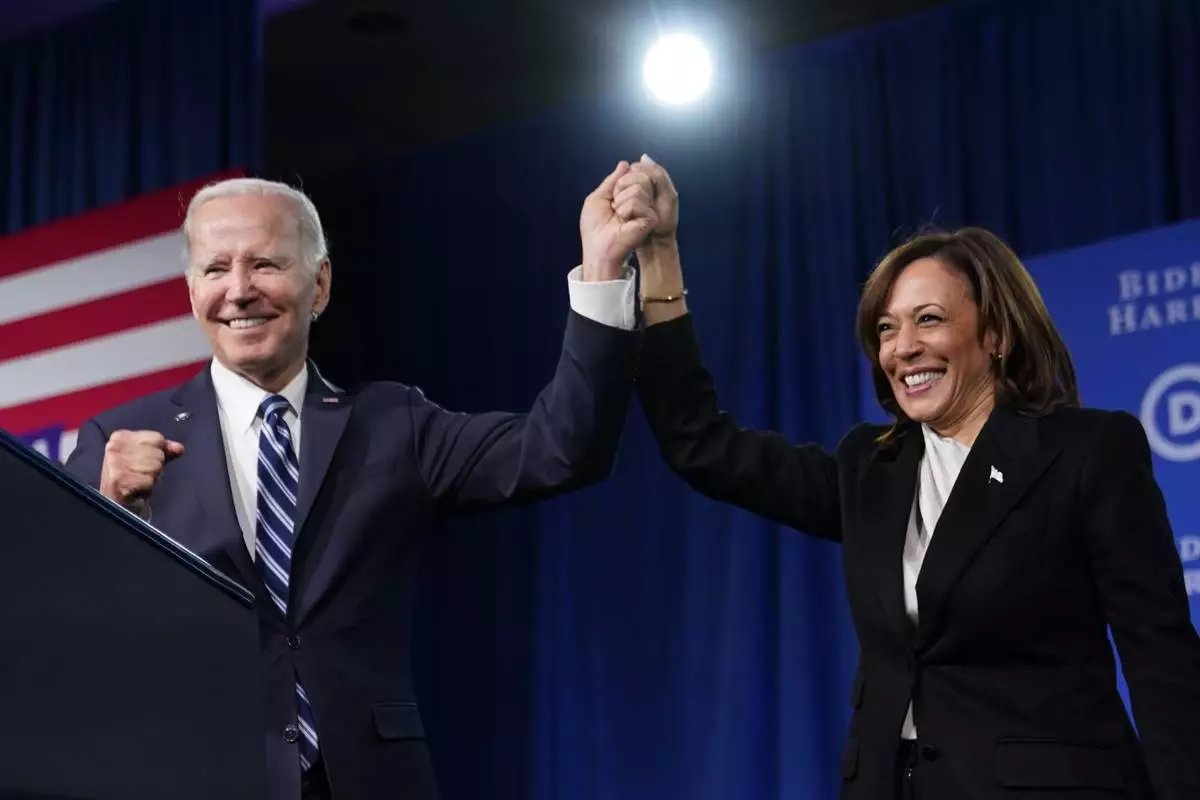
FILE - President Joe Biden and Vice President Kamala Harris stand on stage at the Democratic National Committee winter meeting, Feb. 3, 2023, in Philadelphia. (AP Photo/Patrick Semansky, File)


